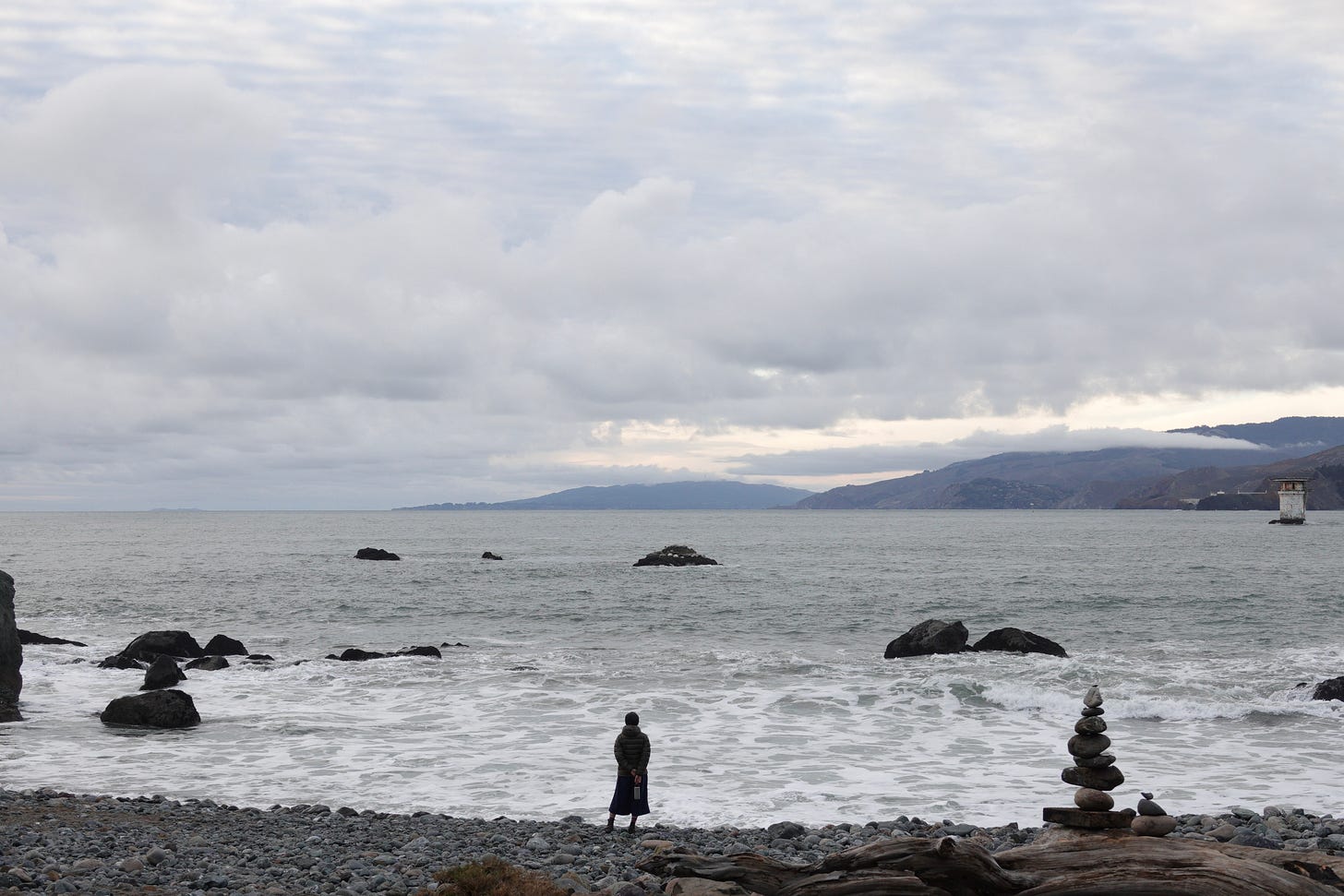Horizons
between the known and the unknown are everywhere in our human lives
HORIZONS
are everywhere: both inside and outside of what only feels like our sense of self. The edge between what I think is me and what I think is you is as much a horizon as any line of mountains or that far dark line on the distant ocean. Horizon is the line between what we think we know and what we do not know, between what we think we see and do not see: horizons mark the threshold between the world that I inhabit and the one that seems to wait for me, between a world I can almost understand and what lies beyond the imagination of my present life. Horizons are creative, disturbing, invitational edges just by the fact that they exist.
Horizons between the known and the unknown are everywhere in our human lives, even when we refuse to lift our heads and our eyes to see them: wherever we live, the sun rises over a certain horizon and sets behind the opposite one at the end of the day, but often invisibly, because we have four thick walls surrounding us, set firmly against our understanding. Horizons are appearing and disappearing all around us whether we know it or not, even in my own mind. When I refuse to face something real and necessary in my life I stop looking at the edge between what I know and what I do not know; I close myself off from understanding by refusing to look at a necessary inner horizon.
Horizons are invitational edges between what is familiar and what must be imagined: the main horizon in my life is the line over which, imaginatively, my future lies. The line between the world I can perceive and the world that waits for me is also a parallel to my individual creative powers and to my sense of personal courage: my individual creativity is calibrated by how much I put the world I live in, into conversation with the world, beyond the horizon, I must live into.




